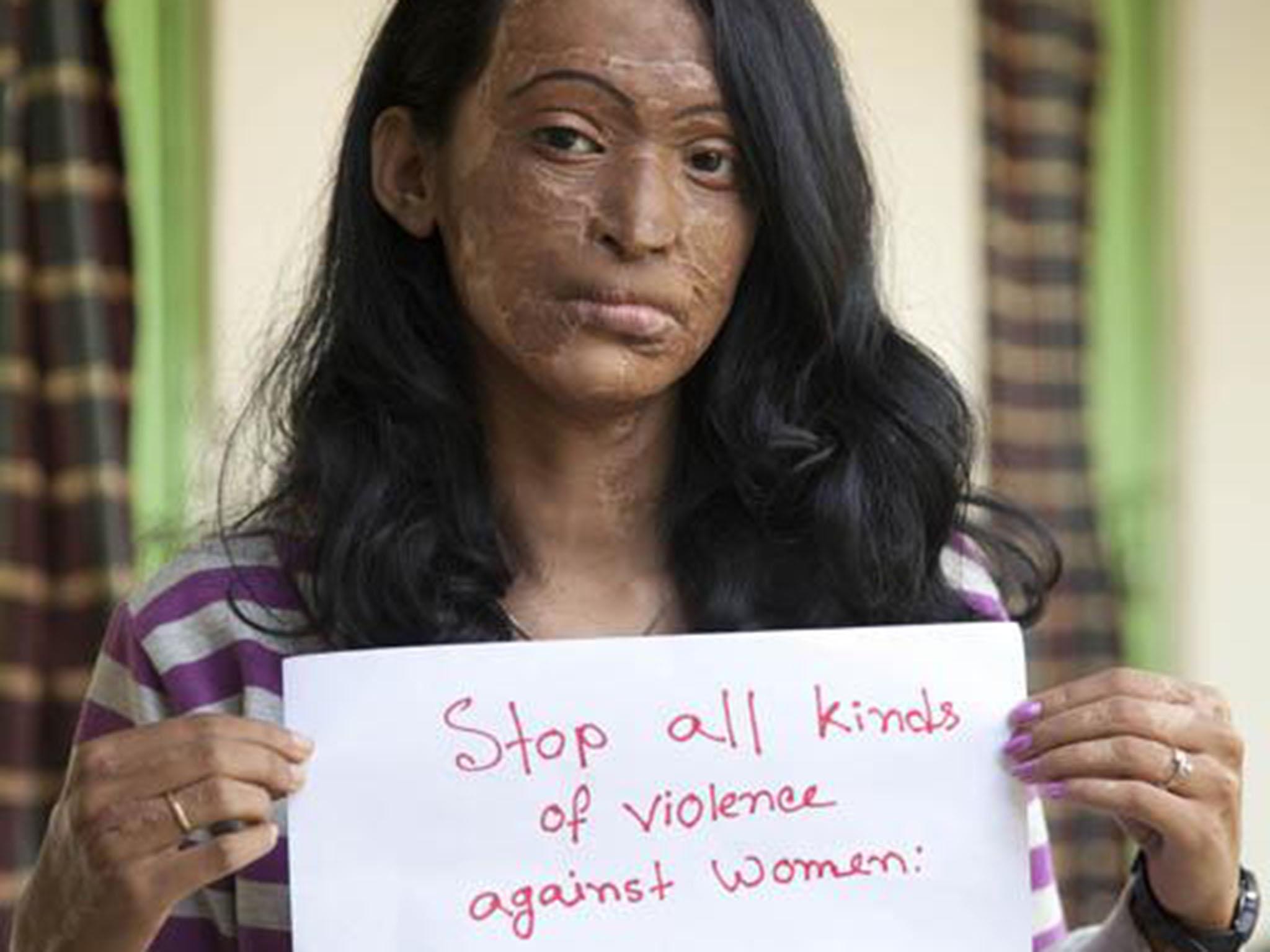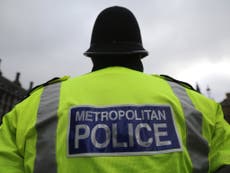Acid attacks have been happening in the UK for 200 years, so why are we only talking about them now?
When we thought they mostly affected Asian women with jealous exes, acid attacks weren’t on anyone’s radar. It’s only because we’re all vulnerable that we’re starting to address the issue


Around eight years ago, when researching the screenplay for my short film “Shrouded”, I spoke to women who were victims of acid attacks, but had chosen to wear the Niqab to cover their scarred faces. The film brought to light the issue of gender terrorism, where acid is not used to kill women, but to torture, humiliate and cause life changing injuries.
Acid attacks happen across the world but impact women disproportionately, especially Asian women who are victims of domestic violence. When a woman does seek medical treatment, hospitals are not required to record the reasons for burns, so we don’t have reliable national statistics. What we do know is that NHS hospitals recorded 144 assaults in 2011/12 involving corrosive substances including petrol, bleach and kerosene. In 2013, the Telegraph reported a three-fold increase in acid attacks in six years. In September 2015, the Guardian reported that acid attack admissions had almost doubled over the previous ten years.
Many of us have followed Katie Piper’s story and may also be familiar with 24-year-old Adele Bellis, who was doused by an attacker hired by her ex-boyfriend. Other women do not speak out, because they live in fear of reprisals from partners, extended families and hired attackers. Since 2010, there has been an increase in refuges closing and a cap on benefits, so many victims of domestic violence and persecution have lost their escape routes.
However, the media has only really become fascinated by acid attacks since it became the weapon of choice on the streets and the targets became more random. Now we are all potential victims, regardless of gender or ethnicity. But in the past the media did very little to confront the level of premeditated assaults in domestic situations, specifically aimed at disfiguring a woman. Masuma Rahim, a London-based clinical psychologist, has suggested that because only 0.4 per cent of British journalists are Muslim: “There aren’t enough of us in journalism to tell our own stories in a way that does them justice.”
Previously, the attacks that were reported were generally the result of jealous ex-boyfriends, and whilst anyone with a possessive ex might be mildly concerned, the haphazardness of many of the recent attacks has created an undercurrent of fear amongst the general population. One can also assume that because not all the victims are women and/or Asian, and the crimes not all “hate” related, that the media is taking more interest.
According to ASTI (Acid Survivors Trust International), the UK has one of the highest rates of recorded acid attacks in the world. Most worryingly, it reports that of the 2078 acid-attack crimes that were recorded between 2011 and 2016, only 414 of those resulted in charges being brought.
It has been argued – mainly on social media and in blogs – that religious and ethnic minorities are to blame for importing cultures that are tolerant of attacks and that the use of acid is somehow an “Eastern” phenomenon. Jaf Shah, Executive Director of ASTI, disputes this analysis saying that acid attacks have occurred in the UK for 200 years.
Belatedly, the Government is now responding to pressure from acid attack survivors and campaigners to impose tougher laws against perpetrators and stricter measures for the purchase of corrosive substances. For instance, acid victim Resham Khan started a Change.org petition seeking a prohibition on the purchase of acid to those without a licence. The petition is currently approaching 470,000 signatures.
The Prime Minister and the Home Secretary say the Government is working with the police to see what more they could do and on Friday the CPS announced plans to bring more severe charges against people who have thrown acid intending to cause harm. This is all to the good – and is a testament to the strength of victims, their families, communities and ordinary people who have called for such changes, not just politicians.
As for the media, it has a moral duty to widen its focus on to the abuse and attacks that occur out of the public eye, in order to encourage victims to come forward – not only to identify and convict the perpetrators, but to protect those who have been affected from further abuse. Most importantly, we need to talk about long-lasting support for acid-attack victims. While for the media an acid attack means just another news story, for those on the receiving end it means permanent, physical and lifelong emotional scars. We must not ignore their suffering.
Rabina Khan is a writer and politician who is currently a councillor in Tower Hamlets, east London


Join our commenting forum
Join thought-provoking conversations, follow other Independent readers and see their replies